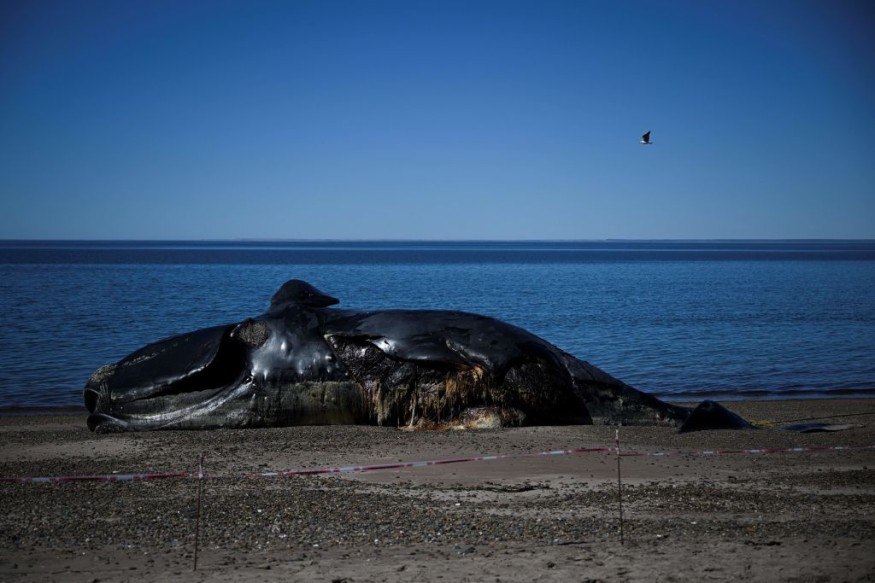Whale strandings have been reported on several beaches in New Jersey since December 10 last year. Protestors reportedly claim a New Jersey wind farm project is to blame for the deaths. However, experts believe there are other reasons behind these whale fatalities. In the past, vessel strikes or ship collisions are some of the primary causes of these fatal incidents.
The demonstration group behind the protest action is called Protect Our Coast NJ, which consists of residents, fishermen, homeowners, and other coastal community members. The main advocacy of the group is "stop the wind turbines" in the waters off the New Jersey shoreline. Although tensions increase, the main reason behind the whale deaths remain unclear.
Anti-Wind Farms Protest

New Jersey local news outlet Philly Voice, earlier this week, reported that Protect Our Coast NJ have attributed New Jersey wind farm project is killing whales, but a marine scientist is saying the said reason is unlikely. The news media company also said the impacts of electromagnetic fields on marine life is not well studied. With this, the investigation is still ongoing regarding the cause.
In their website's homepage, Protect Our Coast NJ is calling the public to take action on protecting the coast from industrialization. In particular, the group highlighted their concern with the large-scale fast track development without comprehensive research about the true effects on the Garden State's tourism, fisheries, wildlife, and coastal communities.
In its visual comparison of structures, the group says the wind turbine stands 1,050 feet, which is taller than the Great Pyramid of Giza, the Washington Monument, the Philadelphia City Hall, the Statue of Liberty, Barnegat Lighthouse, Ocean Casino (formerly Revel), and Steel Pier's Ferris Wheel.
The site details that while we see the wind turbines from the beach, we are unaware of the ecological damage it causes not only on marine life but also marine ecosystems, which threatens even mammals and birds.
Science Behind Wind Turbines
Amid the basis of the civil group's advocacies, marine science professor Ed Hale from the University of Delaware stated the science does not quite support their theory, as cited by Philly Voice. The professor said he does not see a significant link between the high mortality and the generation of electricity itself, making it unlikely as to what have caused the whale deaths and strandings.
Yet, the United States Geological Survey (USGS) the wind industry is facing a key challenge when it comes to the potential for wind turbines to negatively affect wild animals both directly through collisions, as well as indirectly, via noise pollution, habitat loss, and reduced reproduction or survival.
Meanwhile, the NOAA Fisheries explains that offshore wind energy could increase ocean noise, affecting the behaviors of fish, whales, and other aquatic species. In addition, offshore wind turbines also introduce the said electromagnetic fields which can impact the communication navigation, predator detection, and fish's ability to find mates.
While both the USGS and NOAA assert that wind turbines can lead to noise pollution, it is still a mystery how these structures can potentially kill whales.
Related Article : 400 Dead Whales: Largest Whale Stranding in Decades Occur in New Zealand
© 2025 NatureWorldNews.com All rights reserved. Do not reproduce without permission.





